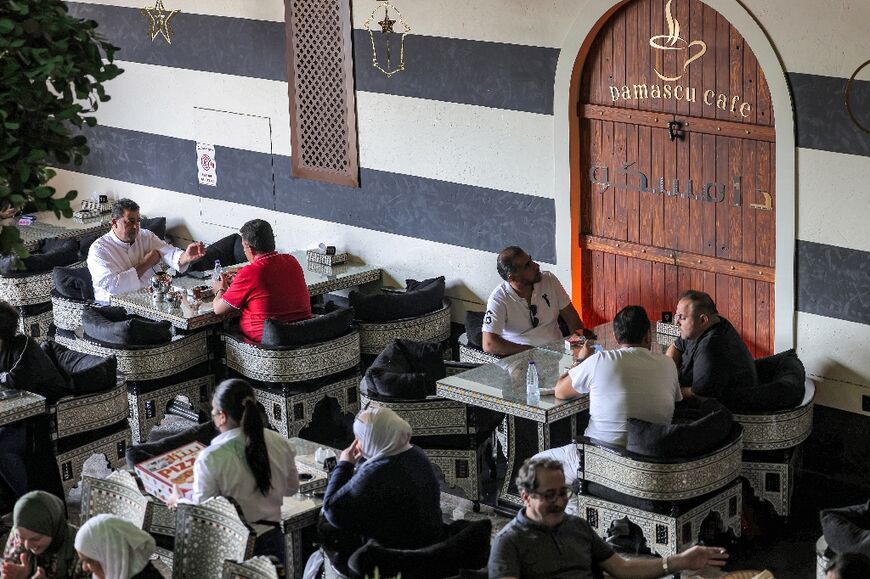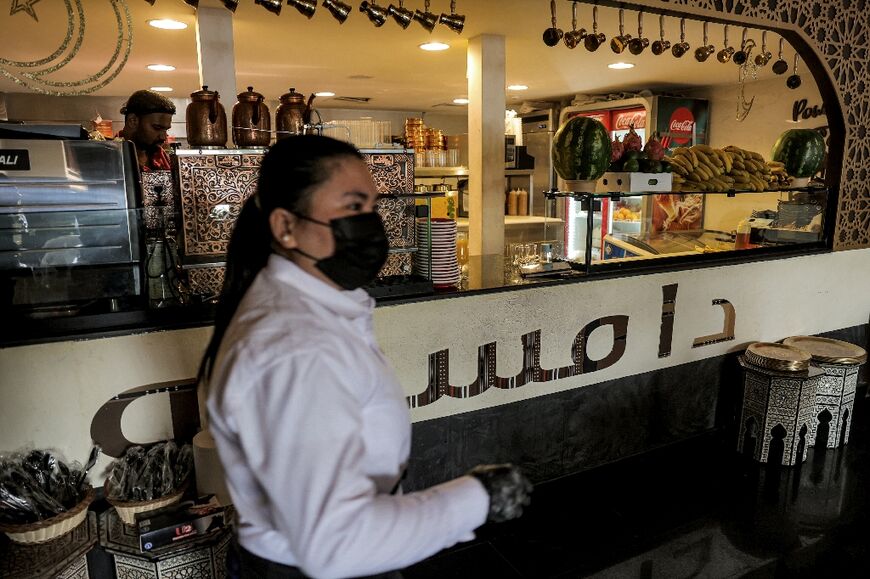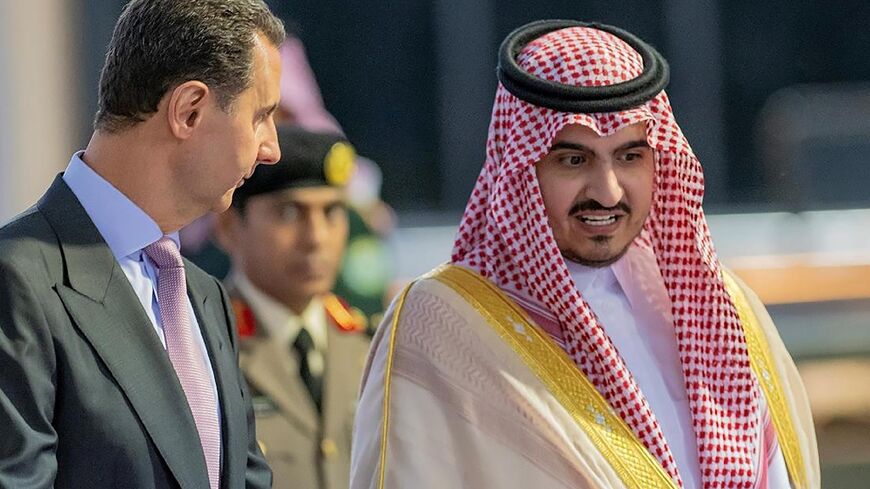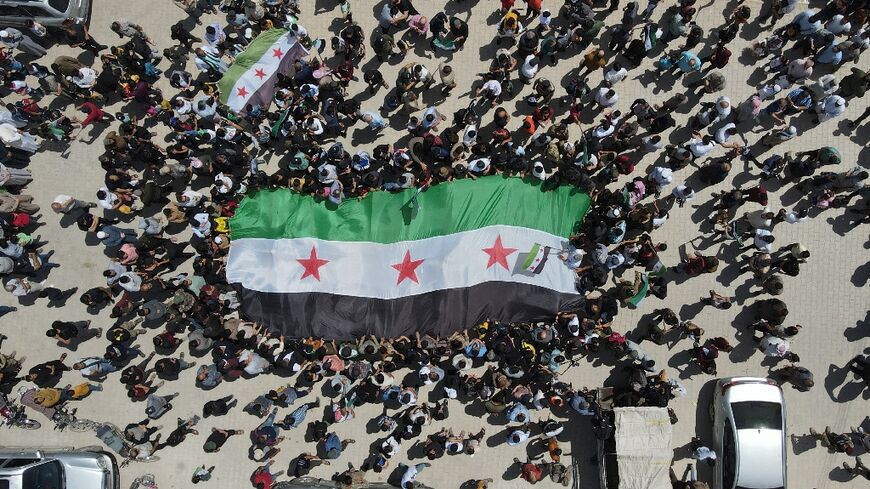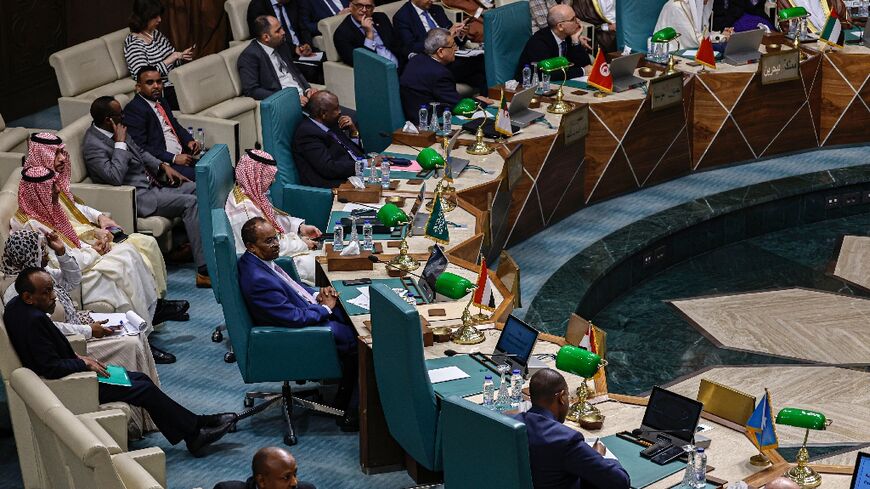Hope and anger as Saudi-based Syrians await Assad visit

Tributes to Syrian culture are everywhere at Riyadh's Damascu Cafe –- from the traditional bean stew on the menu to folk songs that pour from the speakers, name-checking the war-torn country's cities and towns.
There's even a staffer who was hired for his resemblance to beloved Syrian comedian Duraid Lahham, and who spends long shifts posing for selfies with homesick customers
But while the crowds that flock to the cafe each day are united in love for their native country, they are sharply divided on whether their adopted home, Saudi Arabia, has done the right thing by welcoming President Bashar al-Assad to this week's Arab League summit.
Some hope the move, which ends Assad's exile of more than a dozen years from the pan-Arab body, signals an easing of Syria's broader isolation and related economic hardship since the start of the war there in 2011.
"We were waiting for this moment," said 37-year-old Syrian expat Hiba Sidawi.
"It's a pain now to visit our country and see our family. War didn't bring us any added value."
In the other camp are those who can't bear the thought of Assad on Saudi soil –- all of whom spoke on condition of anonymity to avoid riling both Saudi and Syrian officials.
"I hate him! I hate him!" said one woman. "Let him come for what, what will he do? Will he fix things? Will he change the country? He's the one who needs to be changed. I want to say out loud I am against him but I have relatives in Syria, they will drag them all and kill them."
- 'Will he heal our pain?' -
Saudi Arabia cut ties with Assad's government in 2012 in response to the brutal crackdown on pro-democracy protests that triggered the civil war, which has killed more than 500,000 people and displaced millions. It was also the reason Syria was suspended from the Arab League.
The steps leading to Syria's reintegration into the Arab fold go back to at least 2018, when the United Arab Emirates re-established ties with Damascus.
But the process picked up speed after a deadly earthquake struck Syria and Turkey in February, prompting an influx of aid from the region.
During the conflict, Saudi officials had openly championed Assad's ouster.
But after the quake, Saudi Foreign Minister Prince Faisal bin Farhan said a consensus was building in the Arab world that a new approach to Syria requiring negotiations with Damascus would be needed to address humanitarian crises.
The two countries' foreign ministers have since exchanged visits, and Riyadh lobbied hard for Assad's invitation to Friday's summit in Jeddah.
As waiters at Damascu sang birthday songs for a customer earlier this week, one man said news of Assad's impending arrival was nothing to celebrate.
"How can I be optimistic about it? Whenever I look into his face, I remember how many people died because of him," he said.
"Will he bring back our beloved who died? Will he heal our pain and injuries?"
But Fatima, a diner, said the move stirred hopes of a return to pre-war normalcy, even though there is still no political resolution to the Syrian conflict.
"The main problem is travelling, imports and investment. Those are all things which have been closed," she said.
"Now they will go back to normal and things will become better."
Ahmed Abdulwahab, who performs at the cafe, said he shared Fatima's optimism.
"In the past we were left alone... now we are coming back together," he said, referring to the Arab League.
At the same time, he stressed that reintegration hardly undoes the pain of the past 12 years.
"Any Syrian, when you talk to them about their country, you see tears in their eyes," he said.
"It's more than sadness. It's like your heart is burning."


